AITA for Refusing to Pay for My Fiancée’s Family Meals Over Their Tipping Habits?
Dealing with family can be challenging, but when their habits are deeply ingrained in culture and looking forward to financial backing from a family member becomes a norm – the situation can get complicated. In this case, a man didn’t want to pay for his fiancée’s family to eat out together anymore because they left disgustingly low tips, only $1, even after being treated to expensive meals including drinks and desserts. He told them they embarrassed him after they failed to tip at a Korean BBQ restaurant his uncle owned.
His fiancée saw his side when he brought it up to her, admitting she knew her family was like this but had never really confronted them about it. Eventually, the man told her family he would no longer cover meals moving forward, and they went off. He was branded “ungrateful,” told he should consider himself lucky for the favour of biweekly meetings and even told his family’s wealth made it his duty to keep paying. After this, the family took the fight up a level, with racist comments and causing his fiancée to end things.
Leaving a stingy tip is like proposing with a candy ring – cheap, cringey and unforgettable for all the wrong reasons

One 23-year-old man was insulted by his fiancée’s family after he refused to pay for their dinners because of their cheap tipping habits
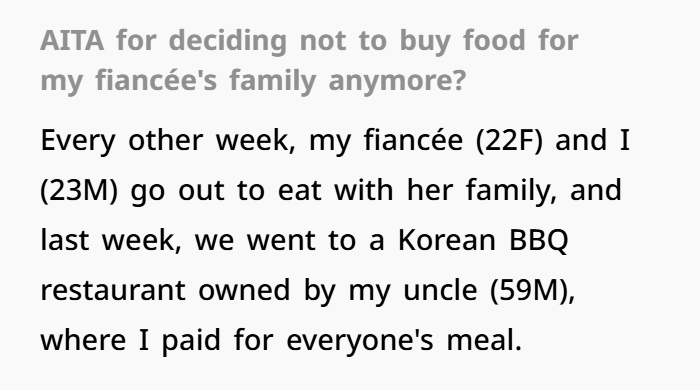
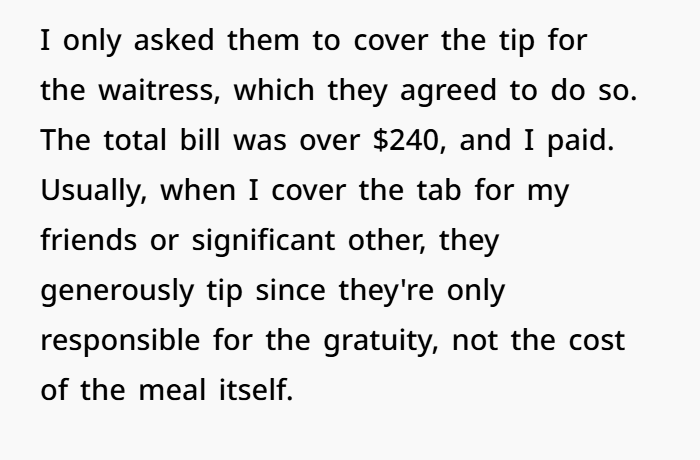

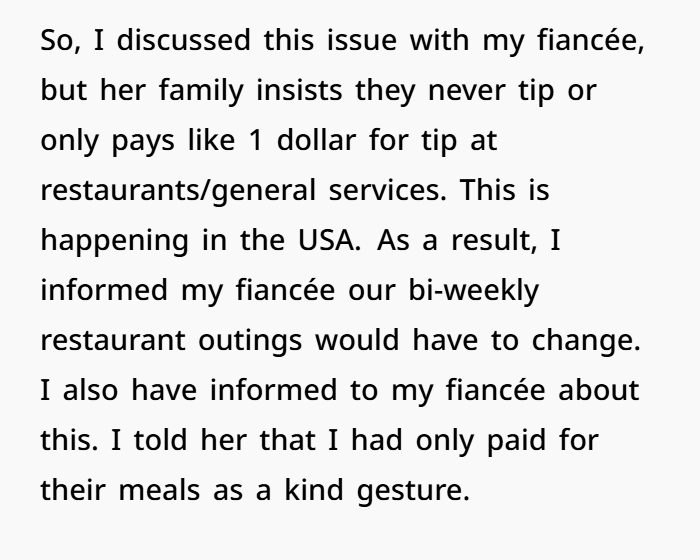



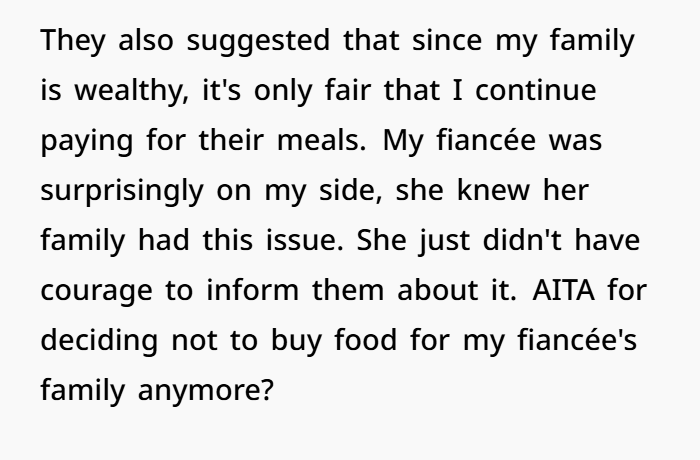
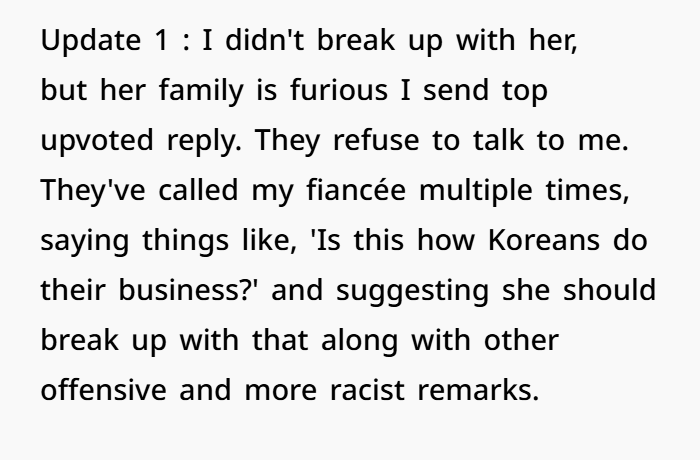
Tipping Norms, Cultural Dynamics, and Boundaries in Relationships
Tipping Culture in the United States
But in the U.S., perhaps more than anywhere in the world, tipping is not simply a token of goodwill but an essential component of the paycheck of the dedicated workers in the myriad professions of the service industry. Tipped employees may be paid less than the federal minimum wage, according to the U.S. Department of Labor, and depend on tips to earn a decent wage. To tip $1 on a $240 bill is essentially insulting, especially at a family-run business. This is unfortunate, as his uncle owns a restaurant, and this only makes the man look bad.
Cultural Perspectives on Tipping
Now, tipping is something that has different customs in every part of the world, but this comes from America, where the norm is tip in full, so to speak. Perhaps the fiancée’s family comes from a culture or background where tipping is minimal or not acceptable, but to refuse to adapt to local customs is rude. Which is a pretty concerning trend considering they still expect him to pay the bill. As experts at cross–cultural communication, such as Geert Hofstede, emphasize, respect for cultural poetics and the context of environment matter.
Financial Boundaries in Relationships
First, when it comes to relationships it is important to set financial boundaries — especially if one is dealing with an extended family. His choice to cease footing the bill for meals mirrors guidance from financial therapy experts, who encourage open dialogue and clear boundaries when it comes to handling money matters. As they say in Psychology Today, one way to create resentment between partners is inequitable finances, especially if you feel like you are getting taken advantage of by your partner.

The very notion of calling him ungrateful and attempting to manipulate his response with the wealth or lack thereof of his family shows a most dangerous degree of entitlement. He is entirely justified in stepping away — It shames the effort he has put in and the generosity he has already exhibited.
Racism and Relationship Stress
It raises a huge red flag for me that the family became offensive and racist—that tells you everything about their values. The American Psychological Association explains how the division brought on by racism creates a toxic environment that can affect relationships at a deep and personal, emotional level. In pushing the fiancée to dump her significant other due to preconceived notions about culture, the family is not only belittling him but taking away the agency of their daughter. A new partner pulling this type of behavior is alarming, and you must identify it to keep your relationship in a healthy and respectful neighborhood.
People in the comments say the man is not a jerk for refusing to pay for the family’s meals, arguing they are only using him for his money
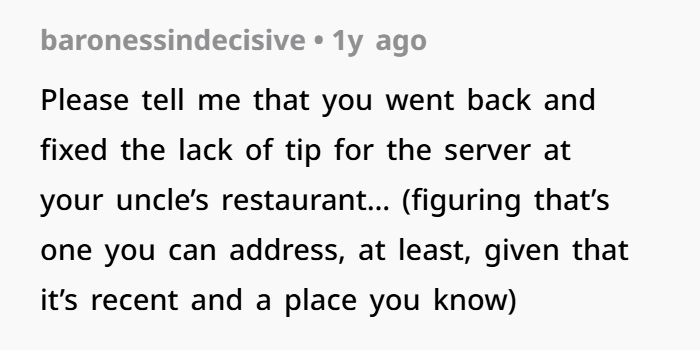
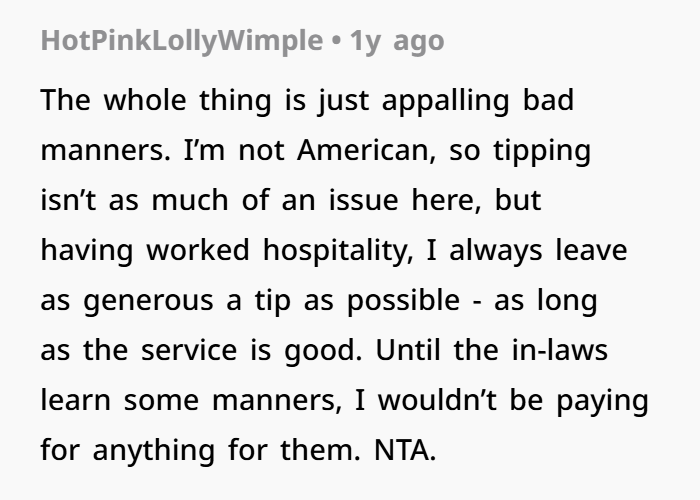
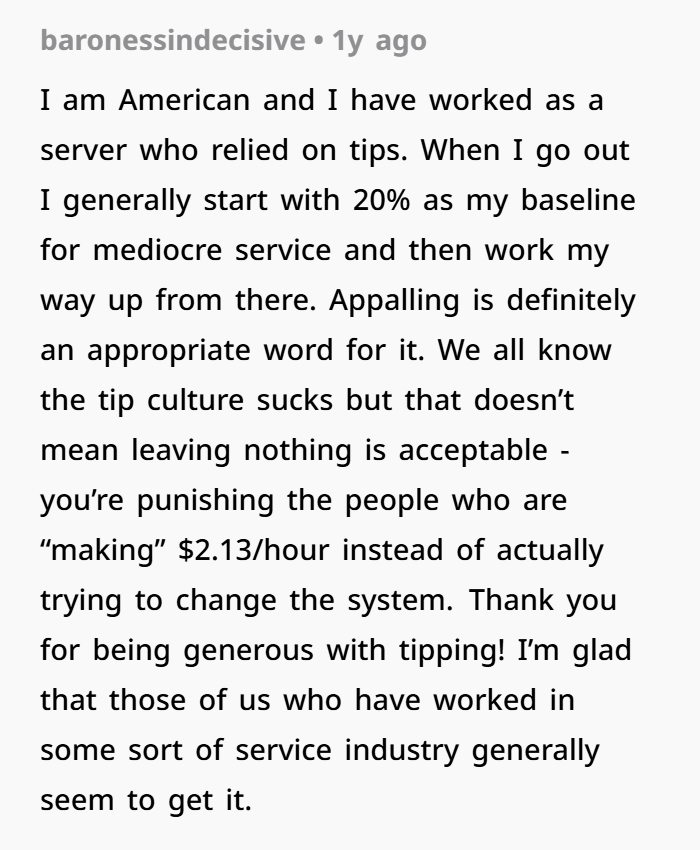
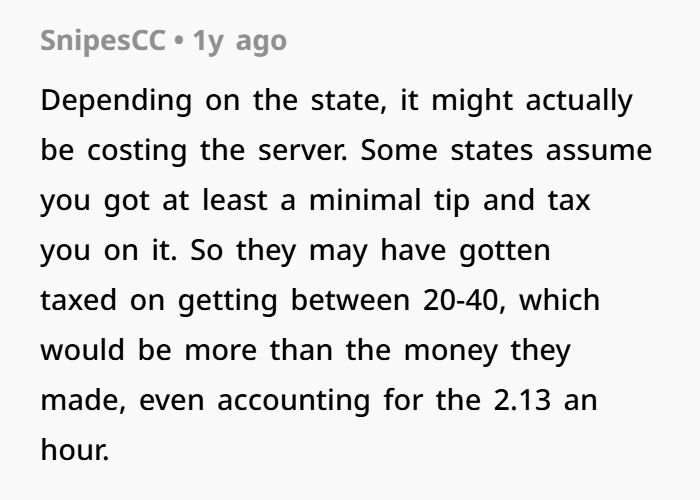
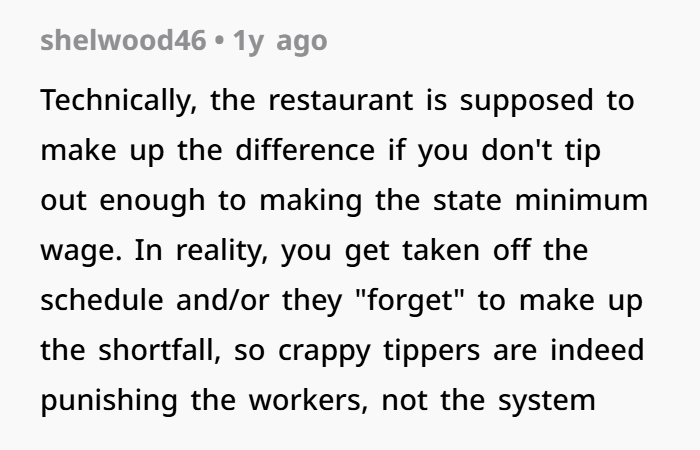

Given how rude their tippers are and the increasing sense of entitlement some people have, the man is very much justified in the fact that he will stop paying for meals for his fiancée’s family. Financial boundaries can be hard to set but even harder to maintain due to the risk of resentment and the clash of expectations. But their racist comments do point to bigger problems that aren’t just about tipping, meaning that little may change in this relationship unless that toxicity changes.

